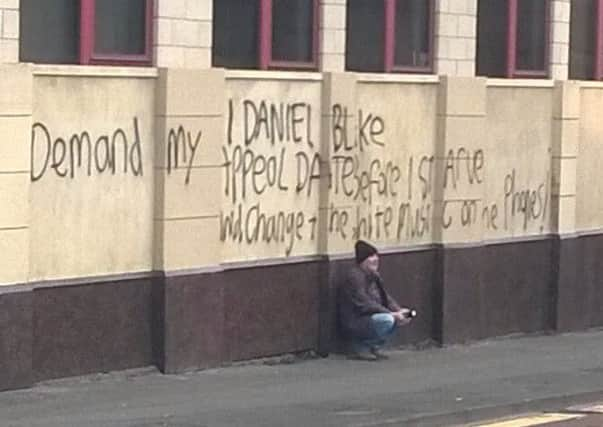Tommy Sheppard: Orewllian nightmare is all too real for too many


They say the mark of a civilised society is how it treats those who are least able to fend for themselves. If that is so then our society needs to be more civil. I, Daniel Blake does dwell on the things that are wrong with our social security system, that’s its point. But don’t kid yourself for a moment that it tells an atypical story.
Every MP in the country can point to Daniel Blakes in their caseload. I can. There are plenty in this city. And the worst thing is it isn’t just about money, but about how people are treated.
Advertisement
Hide AdAdvertisement
Hide AdI often feel as if the benefits system is designed to put people off claiming and receiving benefits which society has said they have the right to receive. The process of determining whether disabled people can get help is positively Dickensian. To get Disability Living Allowance or Personal Independence Payment people are expected to jump through hoops to prove their disability or their illness is severe enough to warrant support. Scant regard is given to mental health
Worst of all the entire assessment is conducted not by clinical practitioners who have their clients’ wellbeing at heart but by private contractors who get paid according to how much they can “save”. Many disability benefits will transfer to the Scottish government next year and ministers have pledged that respect and dignity of claimants will be at the heart of the process and incentives to private contractors will be removed. I’m sure we can do better, but sadly only 15 per cent of the benefits budget is coming to Scotland, so we’ll still spend a lot of time arguing for a more enlightened approach from the Tories at Westminster.
I said earlier the problem isn’t just about money. That’s true, but it is also about money. And it’s about who pays when a government is determined to cut public spending and reduce the size of the welfare state.
We fought and won – for now – the battle against cutting tax credits to low-paid working families. But the most pernicious of Osborne’s attacks on the social security system is still going through. In April 2017 more than 63,000 disabled people in Scotland will see their Employment Support Allowance cut from £103 to £73 a week. This will cause untold hardship and misery for people who are already getting a rawer deal than the most of us. My colleague Neil Gray MP has a motion before parliament next Thursday to postpone and review this decision. Let’s see if Theresa May has a warmer heart than her predecessor.
Advertisement
Hide AdAdvertisement
Hide AdAnd sometimes the bad attitudes and the parsimony of government combine with horrific results. Witness the recent sacking of the private contractor Concentrix, which had been brought in by HMRC to review whether claimants were cohabiting or not. Thousands of people have had their tax credits stopped on the flimsiest of evidence, sometimes on no evidence at all.
The sanctions regime was designed to prevent abuse but now it is being used simply to claw back money, even when that means depriving people of their rightful entitlement. The first some people know that their benefit has been stopped is when they cannot get money out of the hole in the wall. They then find that they have literally nothing to live on and are forced to consider loan sharks and food banks to feed their children.
With over 50 per cent of claimants having their sanction overturned on appeal, it is clear that the regime simply is ineffective, never mind how cruel and callous it is. My colleague Mhairi Black MP has a bill going before the House of Commons on December 2 to try to limit the impact of the sanctions regime on the most vulnerable in society. I’ll be there to vote for it.
Tommy Sheppard is SNP MP for Edinburgh East